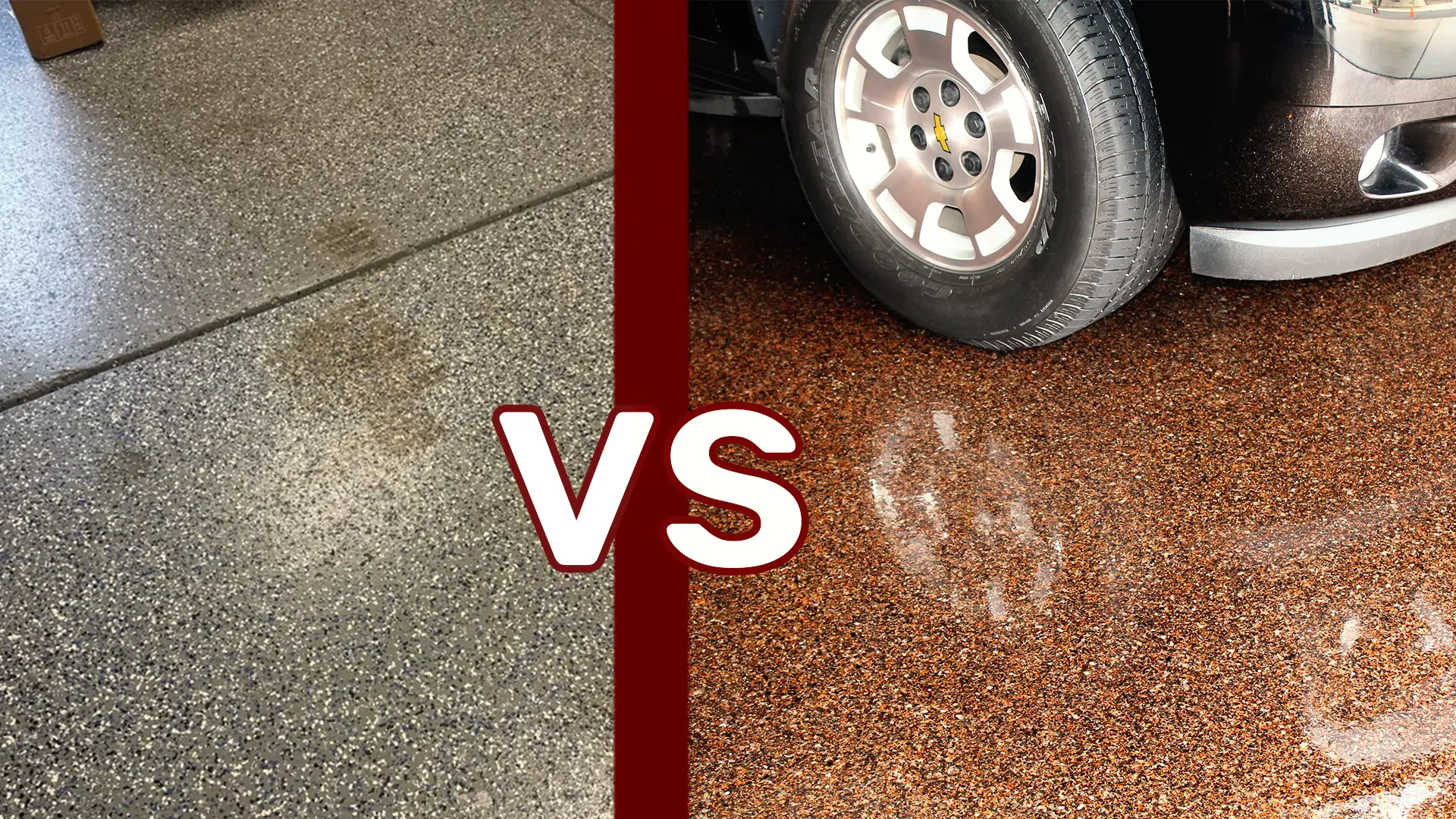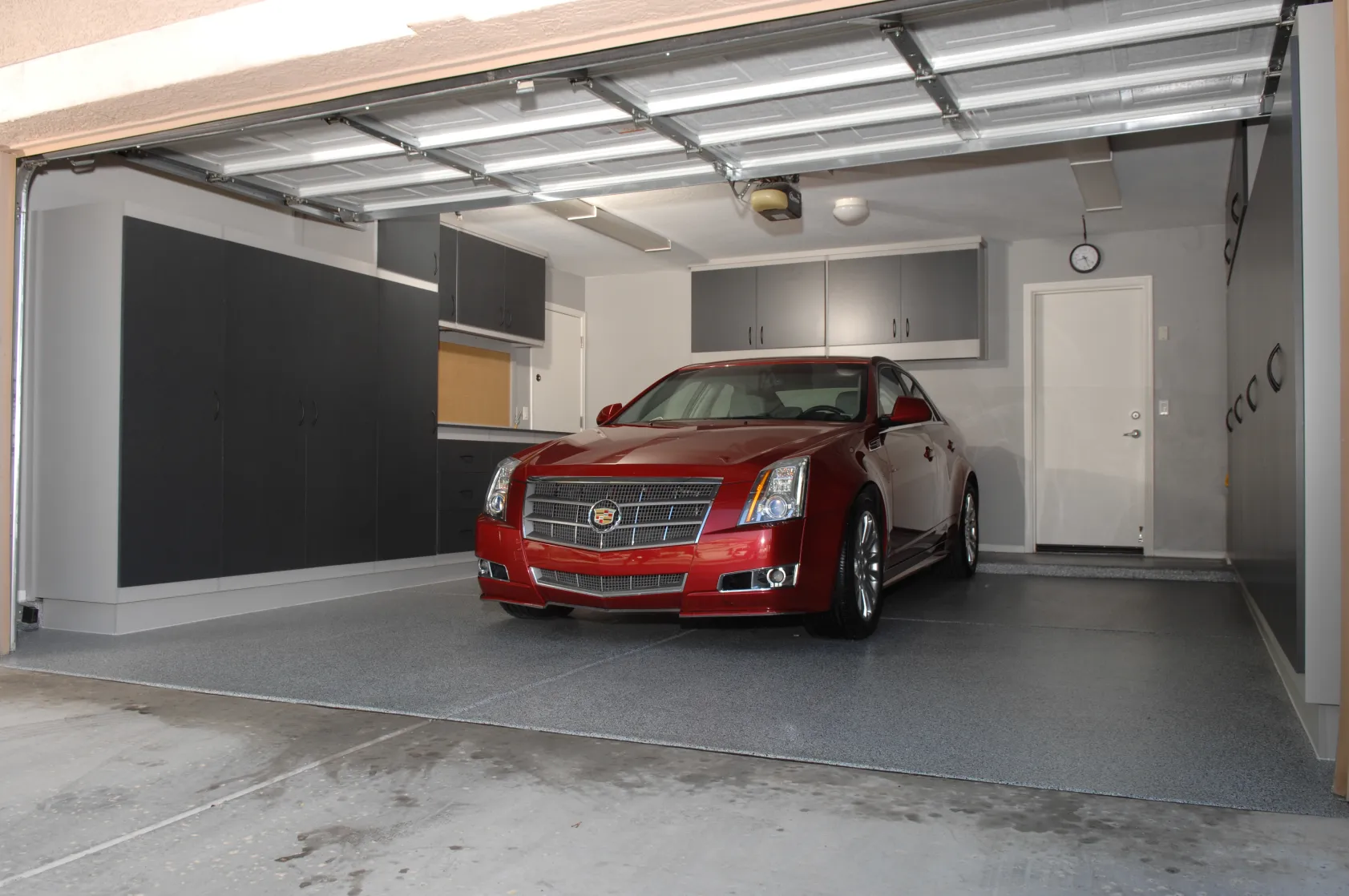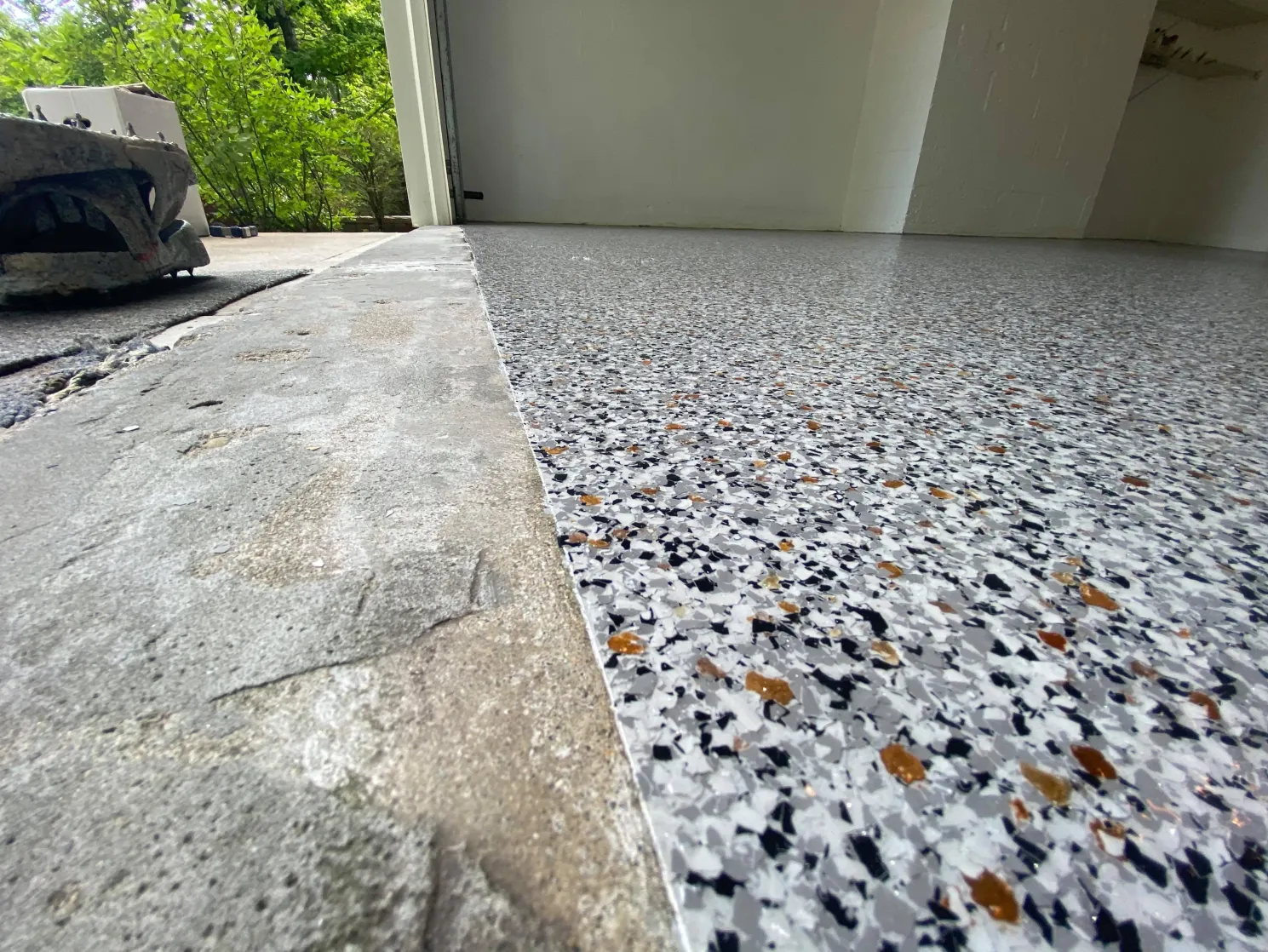Myth: Hot-Tire Transfer Only Happens in Warm Climates
Many homeowners believe that hot-tire transfer is only a problem in high-temperature states like Arizona or Texas. Since Maryland experiences a more varied climate, with cold winters and mild summers, some assume their garage flooring isn’t at risk. However, this misconception leads many homeowners to choose inferior coatings that don’t offer true protection.
The truth is that hot-tire transfer occurs whenever vehicle tires generate significant heat. Whether you’re driving on hot summer pavement or your tires warm up from everyday use, the result is the same—low-quality coatings soften, allowing rubber and road contaminants to embed into the surface. Over time, this leads to stains, peeling, and deterioration, making your garage floor look worn and damaged.
Reality: Hot-Tire Transfer Can Happen Anywhere—Including Maryland
At Garage Floor Coatings of Maryland, we understand that hot-tire transfer isn’t just a concern for hot climates. It’s a problem wherever low-quality coatings are used. That’s why we install hybrid epoxy and polyaspartic flooring, using quality 100%-solids polyaspartic top coats that provide high cross-linking density. Our polyaspartics are designed to resist heat, chemicals, impacts, daily wear and tear…and hot-tire transfer. 1-day polyurea or 1-day polyaspartic concrete coating systems apply a single coat of a 1:1 ratio, poorly cross-linked, <100%-solids polyaspartic top coat. (We have 1:1 polyaspartics as well, but we never use them on floors where vehicles are parked!).
Conversely, Garage Floor Coatings of Maryland uses a 2-day installation process. Our system starts with a high-build (read thick), moisture-mitigating, 100%-solids epoxy base coat. This moisture vapor barrier (MVB) cures slowly, we allow a full day, providing deep penetration into the concrete slab for unmatched adhesion. We then broadcast your chosen flake blend into the “wet” epoxy primer in a full-flake spread (i.e., it fully covers the epoxy MVB). This is followed by two coats (not just one) of our 3:2 ratio, high density, 100%-solids polyaspartic. These dual quality topcoats are designed to withstand temperature changes, chemical spills, impacts, and staining…including staining due to hot-tire transfer.
Myth: All Warranties Cover Hot-Tire Transfer
Some homeowners assume that if they choose a coated garage floor, they’re automatically covered for any type of wear, including hot-tire transfer. Unfortunately, many companies don’t warrant against hot-tire transfer, meaning that once the damage is done, homeowners are left with no protection.
Reality: GFC Stands Behind Its Flooring
Unlike most competitors, Garage Floor Coatings of Maryland warrants against all moisture-related issues AND hot-tire transfer as part of our industry-leading warranty. We don’t cut corners like the 1-day systems, and we don’t leave homeowners vulnerable to premature floor failure. Our hybrid epoxy and polyaspartic flooring system are built to last, providing Maryland homeowners with a durable, long-term solution for their garage floors.
The Right Choice for Garage Flooring in Maryland
No matter the season, hot-tire transfer is a real issue for Maryland homeowners. The only way to ensure long-term durability is by choosing a system specifically designed to withstand the heat and pressure from vehicle tires. Garage Floor Coatings of Maryland’s hybrid epoxy and polyaspartic flooring offers superior protection, preventing stains, peeling, and premature wear. If you’re looking for a garage flooring solution that truly lasts, trust the experts.




